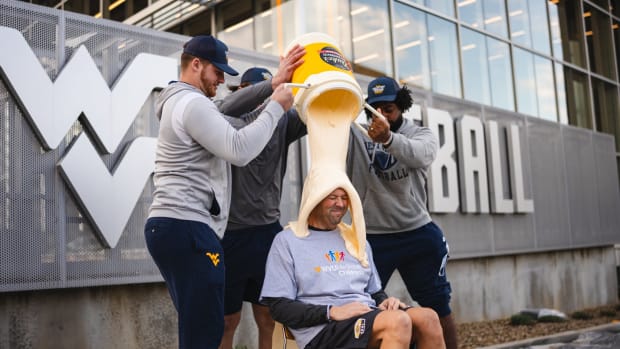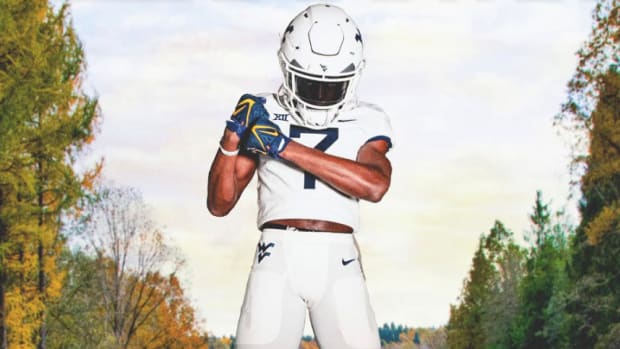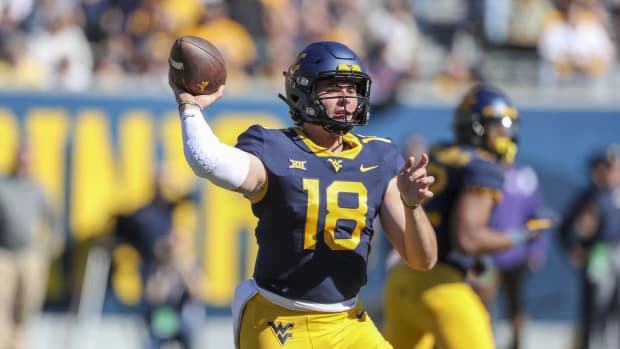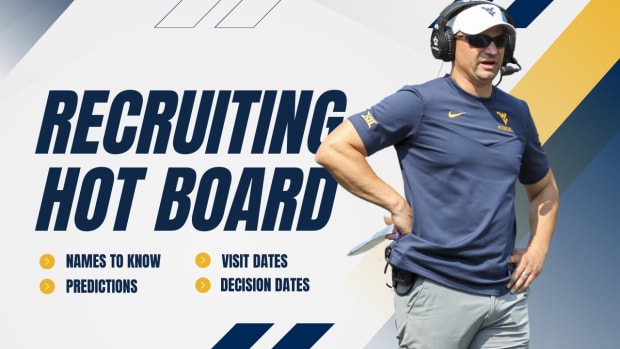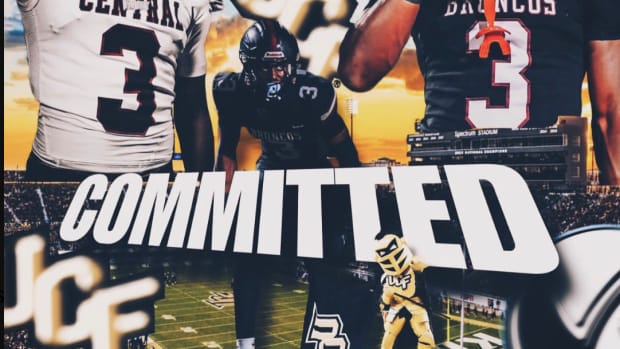Aubrey Burks Could've Left WVU, But He Chose to Remain Loyal in 'Contract Year'
WVU defensive back Aubrey Burks is eager to finish out his career at WVU on a high note.
Some players in college football look to chase the bag after they've become a proven commodity rather than remain at the place that believed in them the most coming out of high school and ultimately the ones who were responsible for their development.
That's not Aubrey Burks.
The West Virginia defensive back has had more than a few schools reach out to him over the past two years, attempting to poach him away from the Mountaineers. Those schools are now 0-for-2 as Burks opted to remain where he felt most comfortable.
"My last year was pretty hectic at the end of the season, my sophomore year going into my junior year. This year, it wasn’t as bad as far as people trying to reach out," Burks said. "I’ve been here... this is going on my fourth year. I’ve been here for three years with the same coaching staff. I don’t really want to go somewhere else and try to pick up on a playbook. Just being around the same coaching staff and there not being many changes is a big reason why I stayed here. I’m comfortable here. There’s no reason for me to leave to chase after some money when I’m playing here, I’m on the field. I got one year left of football and one year left of school to graduate. I don’t think there’s a need for me to try to go somewhere else and mess up.”
This is a completely different mindset than the one West Virginia fans have grown accustomed to. Over the years, the Mountaineers have lost several players to the transfer portal who not only played, but started. It even happened this offseason when defensive lineman Tomiwa Durojaiye unexpectedly transferred to Florida State.
Transferring out of a program because you are seeking more playing time or you want to move closer to home is justifiable. It's the ones like Tykee Smith, Dreshun Miller, Akheem Mesidor, Jordan Jefferson, Daryl Porter Jr., Kaden Prather, and others that really make you turn your head. Why transfer when you have a significant role and for the most part, are viewed as a top player in the league at your position? That's the $250,000 question.
We may never know the actual reasoning behind the decisions of the aforementioned transfers, but the one thing we do know is the NIL situation at West Virginia is in a much better place than it was in 2021 and 2022, which is why Neal Brown has been able to retain the core of his talent each of the past two years.
NIL is great, don't get me wrong. But at the end of the day, that money is going to run out. The "bag" college athletes should be focusing on is the one they'll get from the NFL, NBA, MLB, and so on. That's legit money. Money that will stick around for much longer than a one-year NIL deal. And with Aubrey Burks, he's well aware of that.
“I’m at contract year. When I met with Coach Brown at the end of the year, that’s what we both said - it’s contract year. I graduate in December. Football here is over for me in December. So I got from here until to December to stay focused and do everything I got to do in the classroom, and on the field."
Having gone through the anxiety and pressure of others trying to contact him in addition to learning the NIL game early in his career, Burks is using that experience to ease the minds of his teammates while also giving them a friendly reminder to keep the main thing (football), the main thing.
"I can say this, in our locker room last year it was pretty hectic about NIL. This year, our team is just focused on ball. NIL is just going to come. I tell everybody this, if you want NIL money, you got to go produce on the field first. You can't talk about NIL money without no production. You got to go make plays and then when you make plays, that's when you can go in there and try to negotiate a deal through NIL."
Isn't that refreshing to hear?
I mean, how many times have we seen players transfer out and fall off a cliff production-wise at their next stop? It happens far too often. It's cliché, but the grass isn't always greener. In a lot of cases, transferring ends up hurting a player's development because they're spending most of their time learning a whole new playbook rather than fine-tuning their technique, as Burks discussed. That's not even mentioning learning new teammates, fighting for a role, playing different opponents, and a complete change in academic environment (tutors, professors, etc.).
If you're good enough, the NFL will find you.
